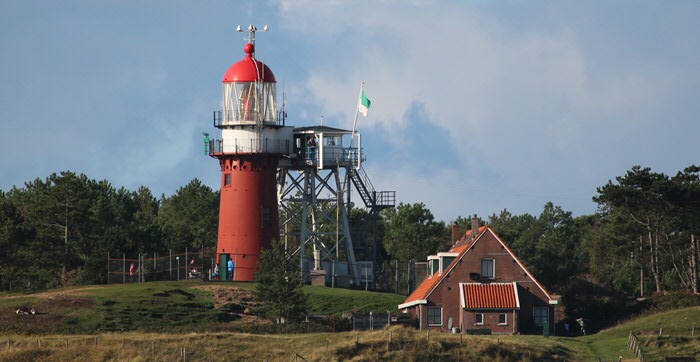Europese Eilandscholen werken samen rondom lokale uitdagingen
Van Schotland tot Griekenland, Finland tot Kroatië; overal in Europa zijn eilandscholen op zoek naar manieren om kwaliteitsonderwijs aan te bieden ondanks hun kleine schaal en geïsoleerde ligging. Wat zouden ze kunnen bereiken als ze samen zouden werken?

Uniek in Nederland, maar geen uitzondering in de rest van Europa, is De Jutter, de enige school op Vlieland, ongeveer 2 uur met de veerboot vanaf Harlingen. Vanwege een dalend aantal leerlingen zijn de basisschool en de middelbare school op het eiland gefuseerd. Het project iSHRINK brengt Europese eilandscholen bij elkaar om samen te werken aan vernieuwend onderwijs, toegespitst op de gedeelde duurzaamheidsuitdagingen van eilanden. Met projectpartners uit IJsland, Nederland, Schotland, Spanje en Griekenland, zal het project topuniversiteiten op de thema’s van onderwijs en duurzaamheid laten samenwerken met eilandscholen als De Jutter om lesmateriaal te ontwikkelen met de nadruk op actieve burgerschap. Leerlingen leren zelf op te komen voor een duurzame toekomst van hun eiland.
iSHRINK wordt de komende 3 jaar gefinancierd onder het Erasmus+ programma van de EU. In Nederland zijn de projectpartners Learning Hub Friesland, De Jutter en Rijkuniversiteit Groningen. Leiding van het project ligt bij Learning Hub, en onderzoekers van de Faculteit Ruimtelijke Wetenschappen van de Rijksuniversiteit Groningen zetten hun expertise op het gebeid van krimp en leefbaarheid in om samen met leerlingen beleidsaanbevelingen op te stellen. Het gymnasium van Astypalaia, een eilandschool in Griekenland, zal samen met De Jutter de eilandscholen vertegenwoordigen in het partnerschap om ervoor te zorgen dat hun wensen en behoeftes centraal staan.
Leerlingen van De Jutter en uit Astypalaia gaan onder andere met onderzoekers en andere experts van universiteiten samenwerken om tot beleidsaanbevelingen te komen over de toekomst van hun eilanden en hun scholen. Deze worden gepresenteerd tijdens het slotconferentie van het project op Vlieland in 2023.
Meer nieuws
-
01 december 2025
De kracht van beweging


